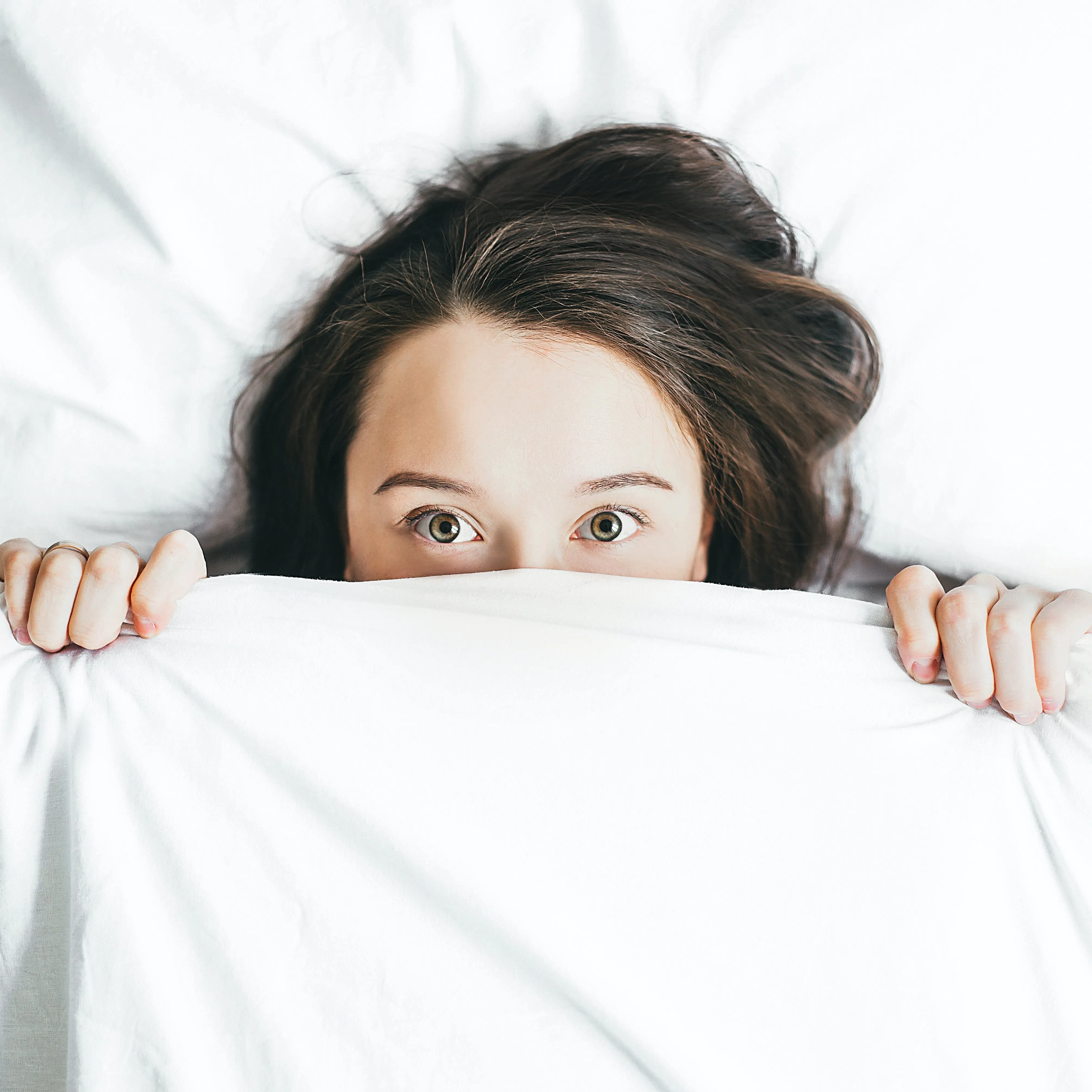ARTICLES / SLEEP


By Dina Hall | updated 12 days ago
7 Sleep Habits to Start Implementing Today For More Restful Nights
If you're in need of a better night's rest, it might be time to consider how your habits may be hindering your success.
Do you ever find yourself looking at the clock in the middle of the night, staring at the ceiling and wondering if you'll ever fall back to sleep again before your alarm goes off?
Insomnia is on the rise, with nearly 1 in 3 adults exhibiting symptoms across the globe.
If you're one of the many people not sleeping well, you can take several steps starting today to make it easier to fall asleep and wake up rested every day.
The tips below are a sure fire way to get yourself back on track to a better night's rest.
1. Pick a consistent sleep schedule
Our body functions like clockwork. And once we establish a pattern, it's hard to break out of it.
One of the biggest mistakes people make is breaking their routine on the weekends. Whether it's your favorite late night show, watching movies into the early hours of the morning or even playing games on your phone, finding the discipline to go to bed at the same time of night can be hard.
However, doing this will reinforce your body's sleep cycle (internal clock), which can make it much easier to fall asleep and wake up at the right time every day.
Make sure that you allow for 7-8 hours of sleep each and every night.
2. Establish a bedtime relaxation ritual
Try taking a relaxing shower or a warm bath. The drop in your body's temperature may help you feel sleepy after you cool down. Gentle stretching after a bath will help release your muscles and built up tension.
You may also want to try doing some meditation or listening to some soothing sounds or music while you focus on deep breathing.
If you like to read at night, be sure to stay away from electronic devices that emit blue light.
3. Shut off your television, phones, game devices or any device with a powered screen
Melatonin levels in the body are very important to reach that sleepy feeling we need to feel at night before calling it a day.
This chemical controls your sleep/wake cycle and when your melatonin levels drop, it can be a lot tougher to sleep properly through the night.
You might think it's only the screen that is the issue, but any buzzes, notification sounds, vibrations or light can wake you up, leading to interrupted rest.
4. Put the brakes on caffeine
Caffeine can have major staying power in the body with the effects lasting up to 7 hours after consuming it. So you may want to reconsider having a late afternoon or early evening cup, if you can avoid it.
While it's usually best to have a window of time to enjoy your coffee in the morning, remember that each individual has a unique tolerance to caffeine in the body, with the lucky ones barely seeing any effect at all.
With this in mind, some people may be able to stretch out their coffee consumption to the late afternoon, while others will have to hit the 'off' button far earlier just to ensure that their sleep won't be interrupted.
It's been shown that the less caffeine is consumed, the more sensitive an individual may become to its effects.
5. Aerobic Exercise is your friend
If you can't make it outside, there's no reason to worry. Indoor exercises done in place can be just as effective as walking and jogging.
In as just as little as 30 minutes per day, you can confidently improve your sleep quality and your health overall. Exposure to natural light and fresh air can help to regulate your sleep schedule as well.
Stretches and yoga are also beneficial. Just make sure that you don't wait until the very end of your day to get your heart rate up. A higher body temperature from exerting yourself too close to bedtime might make it more difficult for you to fall asleep.
6. Your environment is everything
Many people report that having a cool, dark environment helps immensely with good sleep.
A comfortable mattress, linens and pillows is a necessity because the more comfortable that you are, the easier it may be to fall sleep and stay in a deep slumber.
Too much light may require the use of blackout curtains, an eye mask or other measures to keep as much light as possible from not entering your eyes. A salt lamp is also beneficial to have at your bedside to simulate the same light a setting sun provides before sunset, helping with the body's natural production of melatonin.
7. Stay active until your body tells you it's ready to sleep
It's common for many people to use their beds and their bedrooms as "anything goes" rooms. However, the more activities you do in the bedroom, the more your mind may associate itself with those activities. Instead of a place of rest and relaxation, your bedroom has now become a place for working, watching TV, talking on the phone late at night, reading or various other activities.
Your brain will form a connection with the environment where all of this activity is happening and may make it harder for you to turn off your brain when it's experienced so much past stimulation from a bedroom that's been used beyond the scope of its purpose.
If you find reading relaxing, it can be beneficial. However, it's important to abstain from reading material that is not overstimulating your mind before you shut off the lights each night.
SUMMARY: It might be surprising how many bad habits you've accumulated when it comes to your sleep routine. Learned or acquired behaviors from sun up all the way to sun down can have a profound effect on the duration and quality of sleep that we're able to achieve at night.
If you implement the tips in this article, you can confidently say that you've covered most of the bases when it comes to giving yourself the best chance of success at a good night's rest.

Home | About | Privacy Policy | Terms of Service | Earnings Disclaimer | DMCA | FAQ | Contact
©2021-2023 Feel Better Now. All Rights Reserved
This site is not a part of Google, Inc. or Google.com, nor is it sponsored or endorsed by Google. YouTube is a trademark of Google, Inc.
Disclaimer: This site is provided strictly for educational purposes only. Please consult a health professional before implementing any strategy discussed on this website.
DISCLAIMER: This website's content is based upon the author's opinion and is provided on an "AS IS" and "AS AVAILABLE" basis. Always do your own research and confirm the information with other sources when searching for information regarding health issues and always review the information carefully with your professional health care provider before using any of the protocols presented on this website and/or any products sold here. The author is not engaged in rendering medical or similar professional services or advice via this website. The information provided is not intended to replace medical advice offered by a physician or other licensed health care provider.